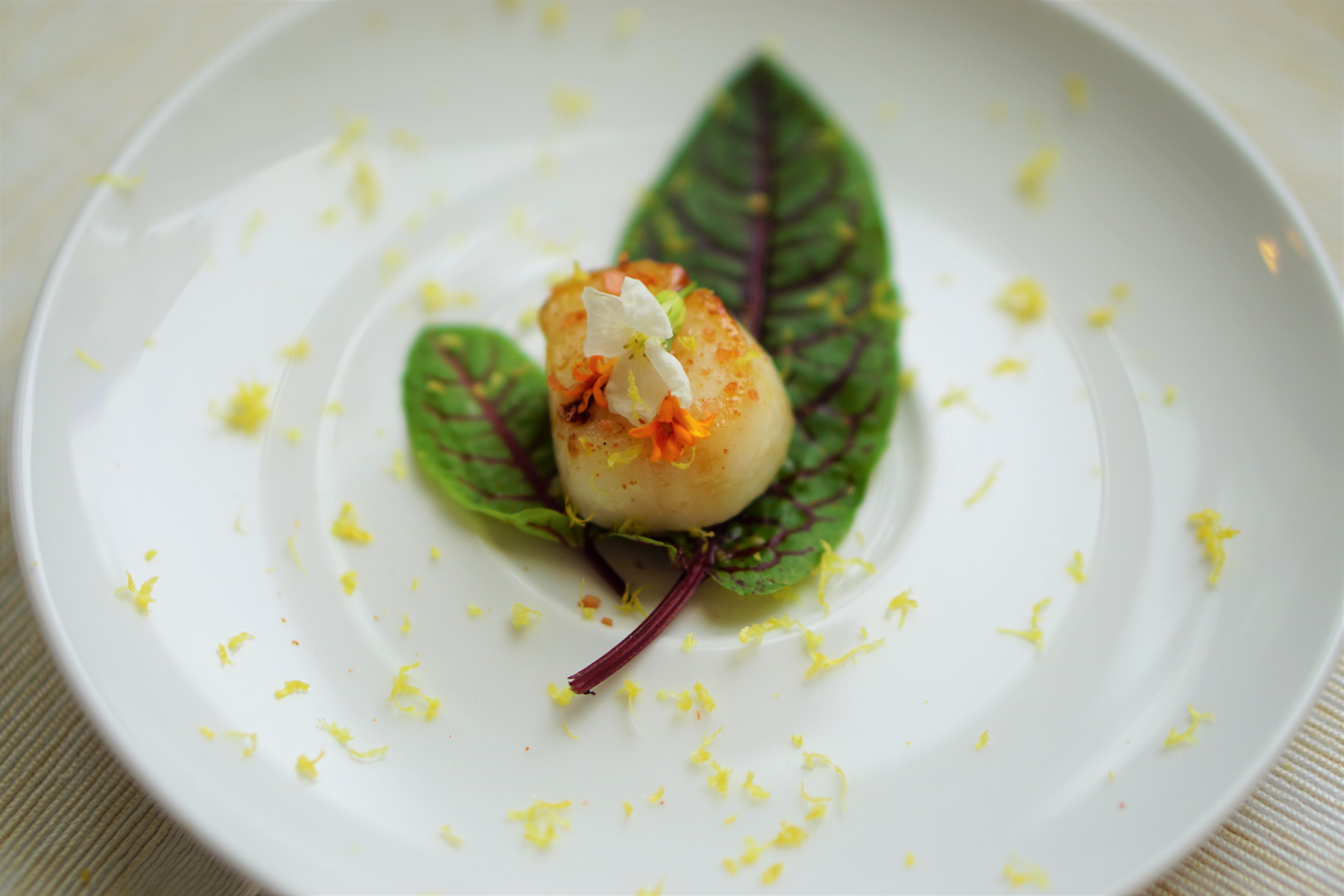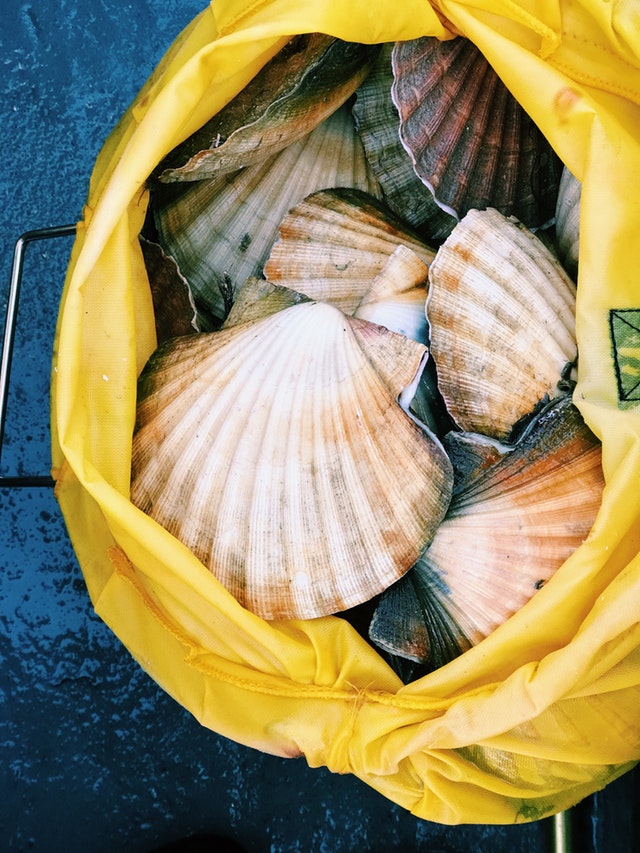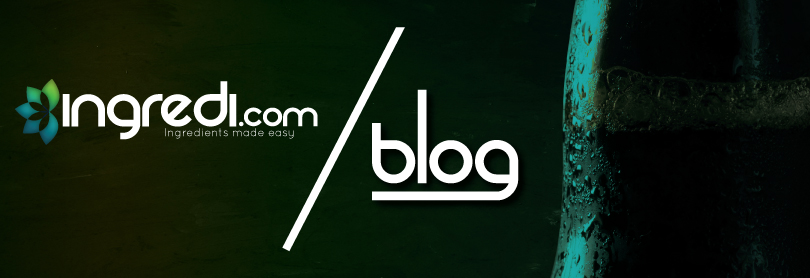What’s the difference between “wet” and “dry” scallops?
By on Dec 27th 2018
Whether you’re picking up seafood from your local fish market or grocery store, you might encounter both “wet” scallops or “dry” scallops. The former type of scallops, also known as “soaked” or “treated” scallops, are treated with a chemical bath that helps to prolong the shelf-life of the product.
What are scallops?

Scallops refer to a variety of different species of marine bivalve mollusks. While in the food world we often identify them as a little white-to-off-white lump of seafood, these bivalves have an entire anatomy we don’t see in the supermarket or at a restaurant, including a shell, nervous system, and even eyes. Fun fact: scallops are the only bivalves to have eyes, and they are often blue.
The scallop meat that we eat is the adductor muscle, although other parts of the scallop are consumable, as well.
Wet vs. Dry Scallops

Because scallop muscles tend to dry out and lose weight fairly quickly, wholesalers may soak them in a solution of phosphates—specifically, sodium tripolyphosphate. Sodium tripolyphosphate (STPP) acts as a preservative and helps the scallop retain water. Scallops are extremely perishable compared to other mollusks because they do not tightly close once caught
Dry Scallops, on the other hand, are natural scallops that have not been treated with phosphates. You can tell the difference between the two types by judging their color. Where treated scallops are very white (STPP acts like a bleaching agent), natural scallops will appear slightly tan or have a “vanilla” appearance.
Besides their white appearance, wet scallops may also be resting in a milky, sticky liquid.
If you’re looking to sauté scallops, dry scallops are preferred because the wet ones have higher water content and won’t caramelize in the same way. Scallops are naturally 75-80% water.
Product Labeling
In the 1990s, the FDA issued a labeling policy for scallops. If treated commercial scallops contain more than 80% water, the FDA required it to be labeled with “Water Added Scallop Product.” Scallops that exceed 84% water content could not be sold and were considered “adulterated.”
In 2004, the FDA abandoned this labeling policy. However, seafood processors who treat their scallops with STPP must state that information on their labels. The U.S Department of Commerce requires scallops with a meat moisture content exceeding 83% to be labeled as treated with sodium tripolyphosphate. In Canada, scallops cannot be treated with sodium tripolyphosphate.
According to the FDA Compliance Policy Guide Sec. 540.700 regarding processed and/or blended seafood products:
“All ingredients must be listed in the ingredient statement of the finished product by their common or usual names in descending order of predominance by weight, in accordance with 21 CFR 101.4, unless exempted from ingredient declaration under 21 CFR 101.100 (a)(3).”
Sodium Tripolyphosphate
Besides its use in helping to preserve scallops and retain moisture, STPP is used in a wide variety of other food applications, including dairy products and meat processing. The FDA lists STPP as "generally recognized as safe."
At Ingredi, we carry Sodium Tripolyphosphate FCC manufactured and packaged by Innophos in bulk 50-pound bags. You can find STPP and other food additives at Ingredi.com.
Additional Resources:






